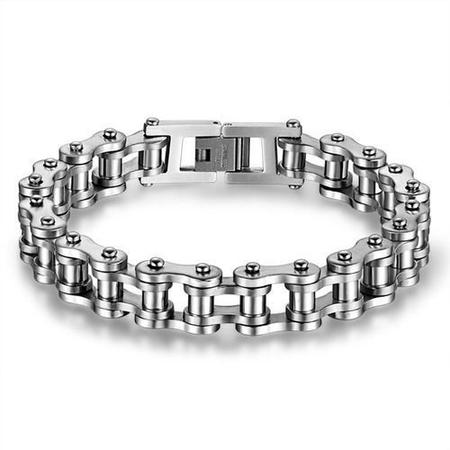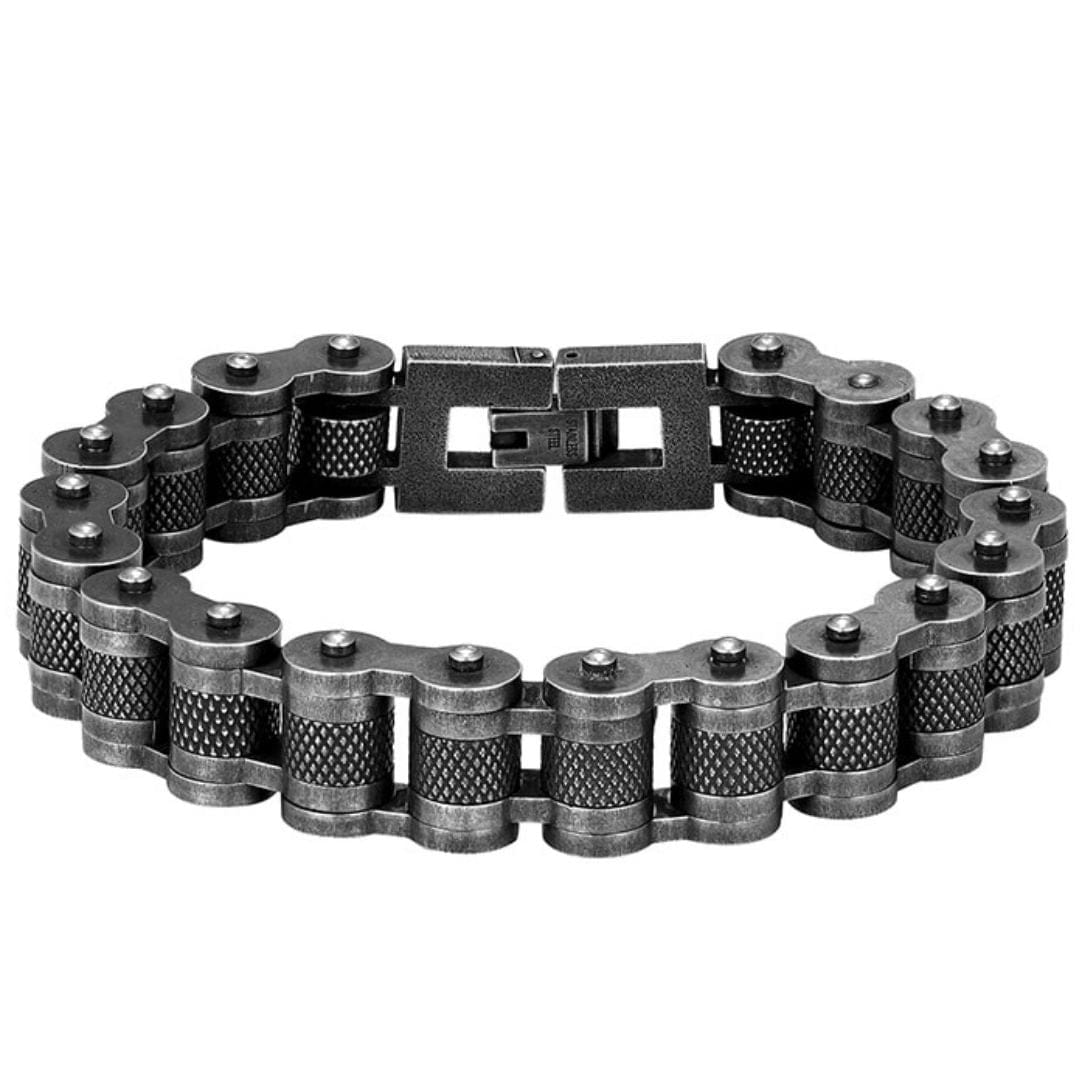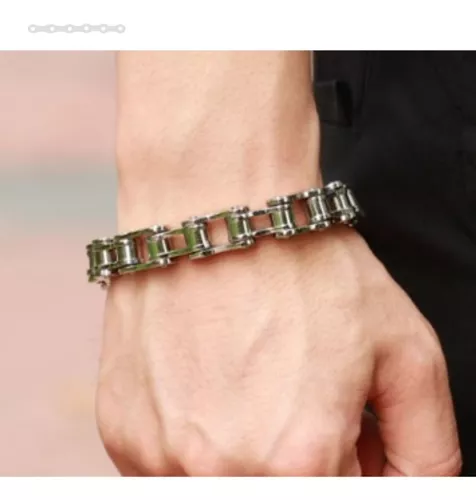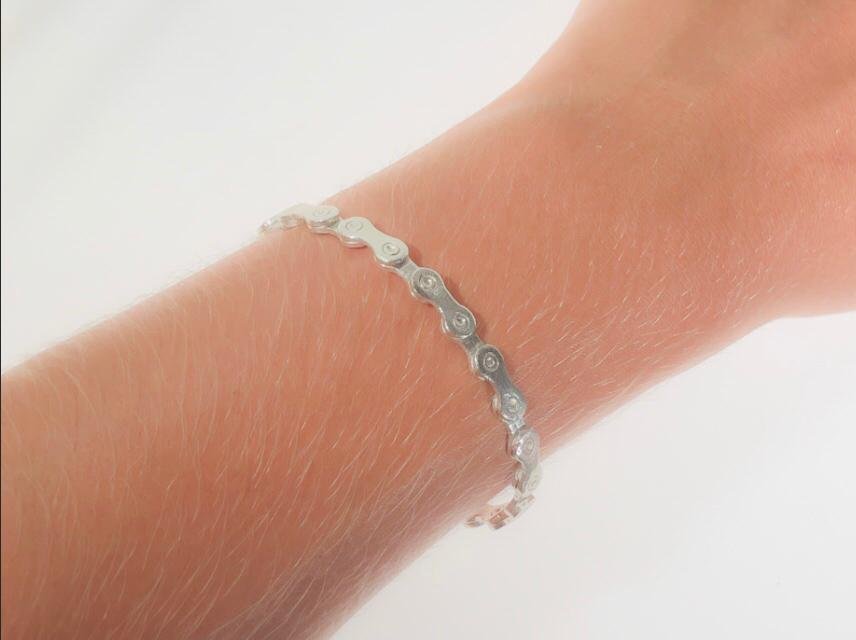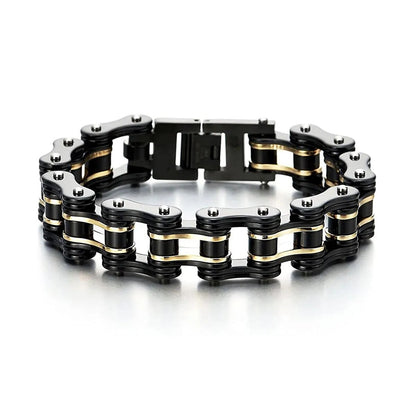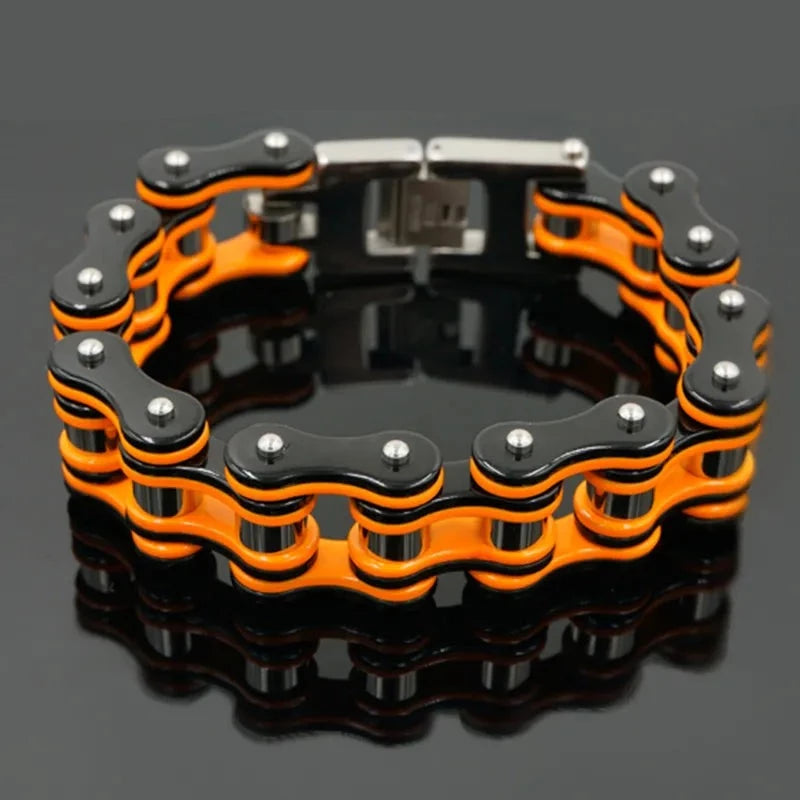
Kit 2 pulseiras masculinas couro e bike | Elo7 Produtos Especiais | Pulseiras masculinas, Pulseiras de couro trançado, Pulseira masculina couro

53.47R$ |Topearl jóias 3 peças pulseira de corrente de bicicleta de aço inoxidável l… | Pulseira de corrente de bicicleta, Pulseiras de correntes, Pulseiras da moda

Kalen escovado bicicleta corrente pulseira legal biker bicicleta corrente pulseira masculina moda masculina de aço inoxidável mão corrente jóias

Oumi punk rock 316l aço inoxidável biker dos homens pulseira link corrente da motocicleta bicicleta corrente pulseiras pulseiras jóias presente

Vintage Trançado Couro Genuíno Dos Homens Pulseira De Aço Inoxidável Motocicleta Bicicleta Corrente Pulseira Punk Masculino Atacado Pulseira Jóias - Pulseiras - AliExpress

Kalen Bicicleta Corrente Pulseira Homens De Aço Inoxidável Motocicleta Punk Pulseiras Masculino Jóias - Pulseiras - AliExpress
